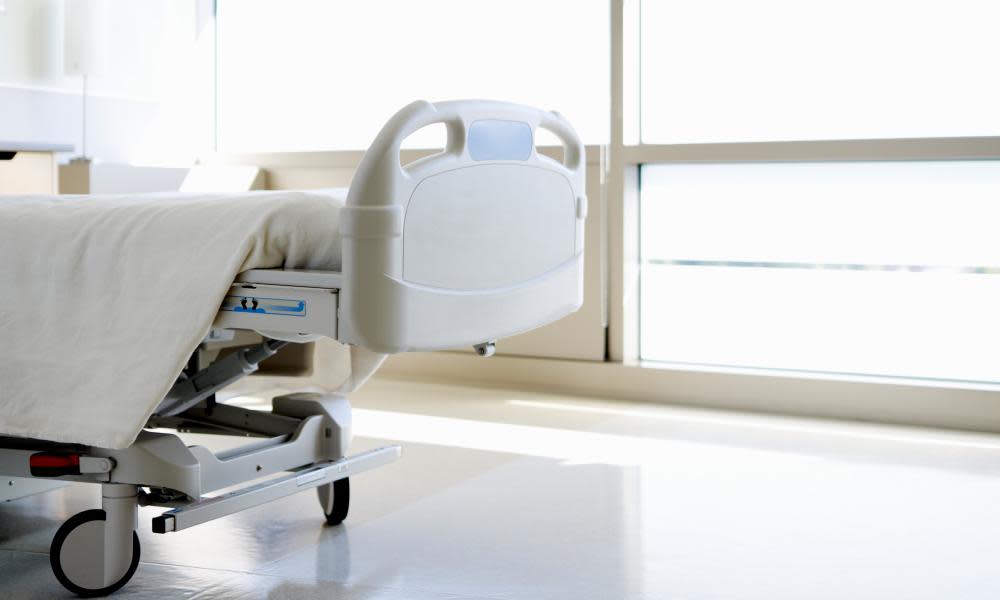Almost 6,000 mental health patients sent out of area for care last year

Almost 6,000 mental health patients had to be sent far out of their local area for treatment last year, with some travelling hundreds of miles, according to NHS figures.
Data obtained by the British Medical Association shows the number of patients with mental health problems travelling long distances for care in England has risen by 40% in two years.
In 2016-17, 5,876 travelled out of their area for treatment, compared with 4,213 in 2014-15.
One patient had to travel 587 miles from Somerset to the Scottish Highlands for help, the figures show. Patients sent away for treatment could expect an average round-trip journey of seven and a half hours to see friends and family.
Dr Andrew Molodynski of the BMA’ consultants committee said it was an “endemic” issue, adding: “The government needs to get a handle on this situation because patients are being routinely failed by a system at breaking point, with tragic consequences.”
He said that if there were “no free beds”, doctors had to take time away from severely ill patients to find a space, “often resorting to private hospitals”. Molodynski added: “Patients then face long waits before being taken miles in locked ambulances to unfamiliar places.”
The Liberal Democrats health spokesman, Norman Lamb, said he was “horrified” by the figures, which he claimed exposed the government’s abject failure to tackle mental health injustices.
“Ultimately, equality for mental health cannot be achieved when budgets are under such enormous pressure. We need to see a sustainable long-term funding settlement for the NHS and social care, and ministers should work politicians and others from across the political divide,” he said.
The figures, provided by trusts and clinical commissioning groups (CCG) in response to freedom of information requests, revealed £159m was spent on placing patients in out-of-area bedsin 2016-17, up 47% on £108m two years previously.
Kent and Medway, Barnet, Enfield and Haringey sent the highest number of patients out of their area. Kent and Medway NHS and social care partnership trust (KMPT) sent 586 patients, while Somerset partnership NHS foundation trust sent a patient the greatest distance, 587 miles.
Louise Rubin of the charity Mind said: “It’s unacceptable that people who are at their most unwell and in desperate need of care find themselves travelling across the country to get help ... When you’re experiencing a mental health crisis, you’re likely to feel scared, vulnerable and alone, so your support network of family and friends are instrumental to recovery.”
NHS England announced 11 sites across the country to test new approaches to delivering mental health services in an effort to reduce the number of people travelling long distances for care.
Rubin said: “We also know that in some places – such as Sheffield and East London – out of area placements have been reduced to virtually nil, so it is possible. The government has also said it will end inappropriate out of area placements by 2020-21 but this can’t happen soon enough.”
Dr Marc Bush of the charity YoungMinds said: ““It’s vital that there are continued improvements not only to inpatient care, but also to community services that help prevent people becoming so ill that they need to be hospitalised.”
Samantha Nicklin of Rethink Mental Illness said: “It is clear that promises of increased funding are not creating change where it’s needed.”
She added: “No one should face a postcode lottery for mental health services, and until pledges of more funding translate into improvements on the ground, these same problems will continue to blight mental health care.“
The data was released during the annual conference of the BMA. Its chairman, Dr Mark Porter, told delegates that the government’s ambitions to put mental health care on a par with physical care remained a “very distant prospect”.
He said patients were being “shuttled around the country” because of a lack of beds, with some having to “languish” in police cells.
KMPT said that since June 2016 there had been a steady decrease in the number of patients in private beds, and now the trust has no inpatients in out-of-area beds. A year ago it had 76 patients in private beds, some as far away as Hull and Manchester, it said.
“This was both a quality of care and financial issue for the trust with the spend per month on private beds exceeding £1m.”
The trust added that becoming chief executive last June Helen Greatorex, a mental health nurse, made a commitment that the trust would work towards having no more than 15 patients in private beds by November. That target was met before that deadline, it said.
“The trust then aimed to have no one in a private bed and has achieved this through strong clinical leadership at all levels, a relentless focus on ensuring that every bed is used to its best effect every single day, and a commitment that people do not have to stay in hospital longer than is absolutely necessary.”
An NHS England spokesperson said: “NHS England is investing an extra £400m in crisis resolution home treatment teams as part of our plans for the biggest expansion of mental health services in Europe.
“We’re also giving local mental health trusts new powers to tailor mental health services to better meet their area’s individual needs, improving local services and ending the practice of sending people long distances to receive treatment.”

 Yahoo News
Yahoo News 
